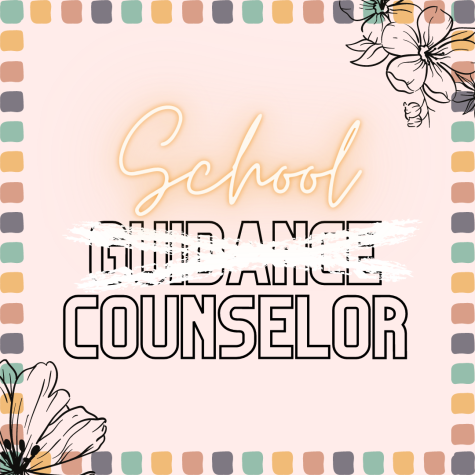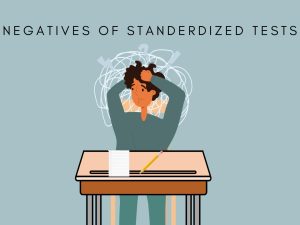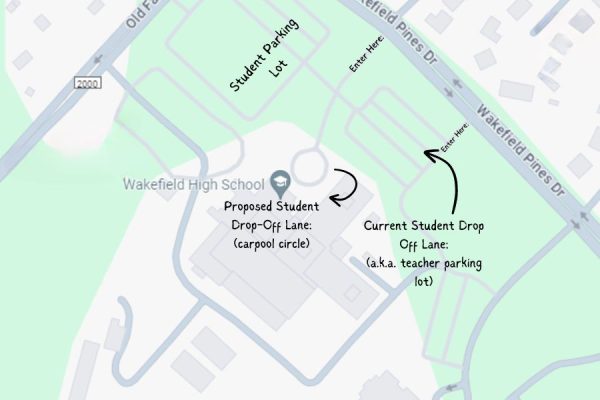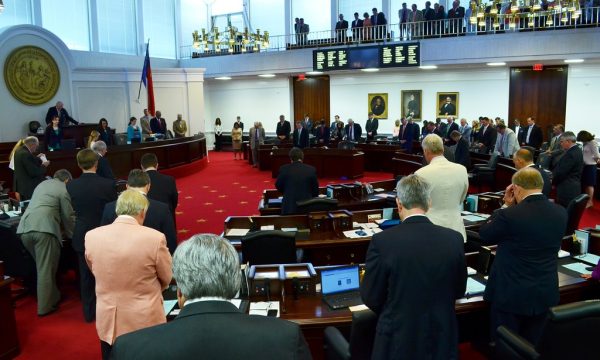School counselors are the key to combating the mental health crisis
May 10, 2023

Warning: This article includes mentions of suicide.
As youth in the United States continue to experience an ongoing mental health crisis, the need for support has become increasingly apparent. Between stigmas that surround mental health and a lack of resources, many teens are left afraid of asking for help, especially in schools. While they are often overlooked, school counselors are an essential part of the education system, students’ lives and ending the mental health crisis.
School counselors are often underappreciated and don’t get the recognition they deserve. People continue to use the outdated term “guidance counselor” which misrepresents the extent of the work that school counselors do. Over 30 years ago, the ASCA officially requested that the profession adopt the term “school counselor,” as the term “guidance counselor” was, and is, no longer an accurate representation of the role counselors play within school settings.
After the COVID-19 lockdown was lifted, the need for school counselors has become especially evident, with 29 percent of students experiencing poor mental health and one in 10 students attempting suicide. Living through a pandemic and being confined to their houses evidently took a toll on many teenagers. The adjustment to online learning, cohorts and then back to in-person learning was not an easy transition for many adolescents, myself included. Between Google Meets and an absence of social opportunities, it wasn’t long before I felt like I was lacking the connections that were once imperative to my life. Returning to school, I didn’t expect it to be “normal,” but I wasn’t prepared for the difficulties I would face in high school after spending so much of my middle school experience online.
Now that we have resumed in-person learning, around one in five students in the United States — nearly eight million kids — don’t have access to a school counselor. Three million of these students also lack access to school psychologists, social workers and other support staff.
These people play an essential role in promoting a school culture that leads to students’ success emotionally, socially and academically. When students are barred from this crucial resource, the mental health crisis among teenangers only increases.
While the lack of mental health resources is affecting students, repercussions can be felt by the counselors as well due to being faced with overwhelming caseloads. The American School Counselor Association recommends one counselor for every 250 students, but across all schools, the average student-to-school-counselor ratio is 464 to one. In high schools, the average student-to-school-counselor ratio is 311 to one; Wakefield High School currently has an estimated 440 to one student-to-school-counselor ratio. When school counselors are expected to provide support for unmanageable amounts of students, both parties suffer.
It would be naive of me to act as if I haven’t felt the consequences of the mental health crisis myself as well as seen changes within my peers. Between an increase in conversations regarding mental health and the constant stress my peers and I seem to share, it appears that many students are in the same boat. It is not uncommon for me to feel overwhelmed with school and the expectations that come with it, or to feel as though my brain is in 9 million different places. Fortunately, I have access to a school counselor who I know I am able to go to, trust and talk through my problems with, a necessity that so many people are lacking. I cannot imagine how isolating it would feel if I didn’t have a counselor to confide in and was expected to make it through high school without having people I could go to for support.
I cannot imagine how isolating it would feel if I didn’t have a counselor to confide in and was expected to make it through high school without having people I could go to for support.
As I begin to look for colleges and plan out my future, it has become apparent that high schools aren’t the only ones affected by the mental health crisis and lack of school counselors. At NC State University, seven students have died by suicide this year, three of which were in the engineering program. Suicide is among the leading causes of death for college students and it feels as though this issue has yet to be addressed. Students who are put in “high-achieving” environments and are constantly expected to perform close to perfection are at a higher risk of mental illness and suicide ideation. These unrealistic expectations combined with the lack of counselors and mental health resources make it nearly impossible to combat the mental health crisis.
After viewing statistics on suicide rates and students who struggle with their mental health, in addition to the number of suicides that have occurred by students so close to my home, it’s shocking for me to believe how this topic continues to be swept under the rug. The amount of benefits that school counselors provide in addition to the impact they can have on students’ lives leaves me questioning how people can doubt counselors’ roles.
No matter their grade level, academic standing or state of mental health, every student should be provided access to a support system. School counselors do more for students than most people realize; they have the ability to change the outcome of someone’s life. The benefits of having access to a school counselor are evident and prove that they are an essential part of ending the mental health crisis among youth.


















Lakia Holliday • May 10, 2023 at 3:02 pm
Great article! Thank you for shedding light on this issue and the impact of school counselors 🙂